What do you say instead of God Bless You when someone sneezes
ge·sund·heit
/ɡəˈzo͝on(t)īt/
exclamation
- used to wish good health to a person who has just sneezed.
You can always just say "Bless you", because whatever you say is just being polite.
Unless you want to say, "Stop spreading your germy bodily fluids."
tomcarlson said:
Why say anything?
This.
That said, if you have to say something, how about "May the Flying Spaghetti Monster be with you"?
It's such an odd custom. One doesn't comment (politely, anyway) on other bodily noises.
tomcarlson said:
Why say anything?
To acknowledge, for one brief moment, that there’s a world of people beyond the screen I’m currently in thrall to.
seems like I need to say.....
don't sneeze into your hand, use your arm...when you sneeze into your hand and touch things, you spread germs...... (unless you can wash your hands right away)
better yet always have tissues ready to grab....
its amazing how many people...adults i see not even trying to cover a sneeze...
"Better you, than me."
Works every time. They don't know how to respond and the subject is dropped.
I read somewhere once that in Asian cultures they don't say anything if someone sneezes. Saying something after someone sneezes (God bless you, bless you, gesundheit) seems to be from cultures that are European based. It does seem odd if you think about it, we don't say anything if a person coughs, but a sneeze needs to be addressed?
My BIL hates his co-worker. Truly hates him. He told us how for over a decade he has refused to say "God bless you" or even just "Bless you" when his co-worker sneezes. He's still waiting for his co-worker to drop dead or be possessed by a demon since he's had over a decade's worth of un-blessed sneezes, but says that so far it hasn't worked.
spontaneous said:
I read somewhere once that in Asian cultures they don't say anything if someone sneezes. Saying something after someone sneezes (God bless you, bless you, gesundheit) seems to be from cultures that are European based. It does seem odd if you think about it, we don't say anything if a person coughs, but a sneeze needs to be addressed?
My family says "kutz kutz" (pronounced with utz sound at the end of kibbutz, not "cuts") when you cough. Not sure if it's Yiddish or Slovak and both parents claim that it came from the other, so I have no way of knowing the derivation.
This is not the original article I read, but it does show different responses around the world to sneezing
jmitw
I get it. Today I had a senior adult seated next to me in the doctor's office repeatedly sneezing and coughing with no face cover. I was most uncomfortable, even knowing that this is allergy season. But there were no other seats available. Ich! Geshundheit was not my reaction. What I really wanted to say was "Leave this waiting room right now, idiot".
"You are so good looking".
https://www.youtube.com/watch?v=UeILe2dXaBE&ab_channel=SeinfeldFan
blianderson said:
"You're so good looking"
Sorry, you posted before I did.
My beloved grandmother Helen, who gave her wild and loving sense of humor to her children, grandchildren and great-grandchildren, asked that very same question. She's been gone 50 years but I remember her and cherish her memory. When someone sneezed in her presence, she always said "bosom-tight." It didn't mean anything but it made her and everyone around her laugh.
bella said:
My family says "kutz kutz" (pronounced with utz sound at the end of kibbutz, not "cuts") when you cough. Not sure if it's Yiddish or Slovak and both parents claim that it came from the other, so I have no way of knowing the derivation.
Did a little research on this. Kutz kutz is a German phrase, though apparently more common in Austria. In fact, there is an Austrian tea brand called kutz kutz that’s supposed to help your cough.
https://www.violey.com/en/sonnentor-kutz-kutz-tea_p_13909.html
The_Soulful_Mr_T said:
My beloved grandmother Helen, who gave her wild and loving sense of humor to her children, grandchildren and great-grandchildren, asked that very same question. She's been gone 50 years but I remember her and cherish her memory. When someone sneezed in her presence, she always said "bosom-tight." It didn't mean anything but it made her and everyone around her laugh.
This made me laugh. I used to work with a woman who would ask “Did ya clench?” anytime someone coughed or sneezed. Never bless you, always “Did ya clench?” “Did ya” would come out sounding more like “did-ja.” I didn’t get it at the time. Then I gave birth a couple of times. Now every time I cough or sneeze in the back of my head I hear Dot saying “Did ya clench?” 
 Bella and ridski, we’d learnt kutz kutz from my sister’s Hungarian in-laws. It’s said whenever a baby/infant coughs, sneezes, hiccoughs or burps. More as a smiling encouragement rather than a warding-off of bad spirits, and brings a smiling response from the ‘stricken’ one. (So thé sympathetic murmur soothes and relaxes the alarmed coughed/sneezer)
Bella and ridski, we’d learnt kutz kutz from my sister’s Hungarian in-laws. It’s said whenever a baby/infant coughs, sneezes, hiccoughs or burps. More as a smiling encouragement rather than a warding-off of bad spirits, and brings a smiling response from the ‘stricken’ one. (So thé sympathetic murmur soothes and relaxes the alarmed coughed/sneezer)
In Greek culture, people respond to sneezing with murmurs of ‘Health!’, similarly to raising a glass. I’ve also heard some English speakers mutter ‘cheers!’ in hay fever season, especially if they also need antihistamines. Others just ask, ‘Need a hankie?’. In Hebrew, you’re wished La’briut, which is also ‘to health’.
All this reflects the ease of epidemics spreading, especially diseases with fevers and serious respiratory effects. It terrified earlier generations, devastated families and the wish for continued good health was therefore genuine. The reciprocal ‘excuse me’ on the part of the sneezer/cougher etc was likewise a recognition both manners and their role in spreading disease. Often sadly missing today.
Njjanyce said:
ge·sund·heit
/ɡəˈzo͝on(t)īt/
exclamation
- used to wish good health to a person who has just sneezed.
This or Yietza (sp?) My third grade teach taught us this long ago as a word to use as an alternative expression for "Bless you" after a sneeze. I can't remember if it had a meaning but it always stuck with me.
joanne said:Bella and ridski, we’d learnt kutz kutz from my sister’s Hungarian in-laws. It’s said whenever a baby/infant coughs, sneezes, hiccoughs or burps. More as a smiling encouragement rather than a warding-off of bad spirits, and brings a smiling response from the ‘stricken’ one. (So thé sympathetic murmur soothes and relaxes the alarmed coughed/sneezer)
In Greek culture, people respond to sneezing with murmurs of ‘Health!’, similarly to raising a glass. I’ve also heard some English speakers mutter ‘cheers!’ in hay fever season, especially if they also need antihistamines. Others just ask, ‘Need a hankie?’. In Hebrew, you’re wished La’briut, which is also ‘to health’.
All this reflects the ease of epidemics spreading, especially diseases with fevers and serious respiratory effects. It terrified earlier generations, devastated families and the wish for continued good health was therefore genuine. The reciprocal ‘excuse me’ on the part of the sneezer/cougher etc was likewise a recognition both manners and their role in spreading disease. Often sadly missing today.
So, it can be from either my mother's family (Yiddish/German Jews) or my father's family (Slovak, which was once part of the Austo-Hungarian empire). Either way, it's firmly ingrained in me to say kutz kutz when someone coughs.
I remember when we were studying the medieval and Black Death plagues at Uni that this was when the traditions of excusing and warding/wishing probably became most commonly accepted.
Our lecturer stressed the old views were that the practices were superstitious and protective but a clearer understanding of societies also allows for people to express embarrassment or to relieve another's embarrassment; to show concern for another's wellbeing without overstepping boundaries; demonstrates awareness of one'simpact on others; and perhaps seeks to remove the fear of Impending Doom that a cold or flu (or worse) brought. 
I give them a score of 1-10 indicated by holding up a card with the result.
Featured Events
For Sale
Garage Sales
-
Multi Family Garage Sale Sale Date: Apr 20, 2024
More info






















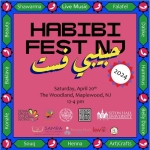

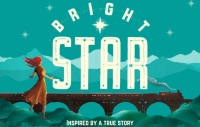



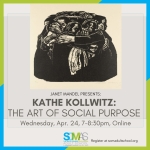




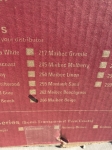


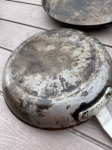




As an agnostic, I thought this is crazy that I am always saying “God bless you” when someone sneezes. I know it is ingrained and may seem so innocuous to many, but then sexism and racism can be ingrained and go undetected. What do some people say instead to be polite?